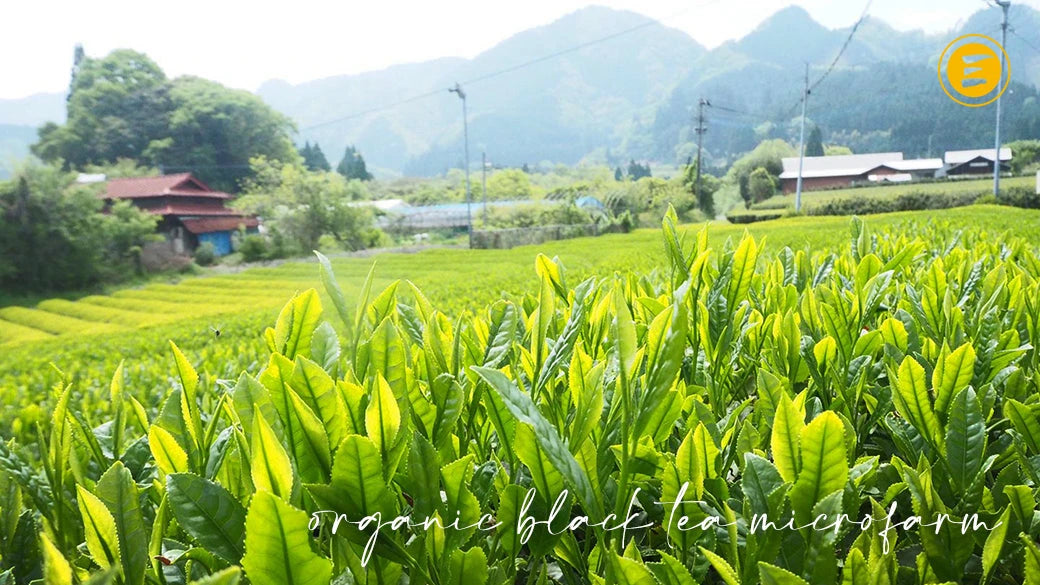
Wakoucha: Japanese Black Tea
Wakoucha: Japanese Black Tea from Japan’s Hidden Tradition
What is Wakoucha?
Red tea — or black tea, as it is known outside producing countries — is called Wakoucha in Japan. The word "Wa"means Japan, "kou" means red, and "cha" means tea. Japanese Black Tea is a rare and traditional style of tea, first cultivated and exported by skilled local artisans.
Historically, the production of Wakoucha was not aimed at local consumption, since the Japanese preferred green tea. Farmers created this tea to compete with Chinese, Sri Lankan, and Indian black teas on the export market. However, after the Free Trade Agreement in 1971, production sharply declined, and most farmers focused exclusively on green tea to sustain their businesses.
Today, small tea farms across Japan are reviving forgotten cultivars of Japanese Black Tea, producing high-quality leaves for tea connoisseurs and enthusiasts worldwide.
Our Organic Wakoucha Microfarm
Our Wakoucha organic microfarm is located in the Shizuoka region in southern Japan. Here, tea artisans cultivate the Benifuuki variety — a relative of Assam and Darjeeling, two of the most famous Indian black teas.
Benifuuki is known for its strong yet smooth taste, floral aroma, and natural sweetness without bitterness. It also contains a high level of O-methylated catechins, researched for their potential to help alleviate seasonal allergy symptoms.
Once harvested, our Japanese Black Tea undergoes several precise steps: withering, rolling, sieving, fermentation, drying, and finally sorting and packing. All cultivation is done using organic farming methods, without chemical fertilizers or pesticides.
Fermentation Process
Fermentation is a natural chemical transformation that begins when tea leaves rest at a controlled humidity. The process is stopped by heat, which locks in flavor and aroma. As a result, Wakoucha develops a rich taste, vibrant color, and aromatic complexity.
Compared to Indian or African black teas, Japanese Wakoucha offers a more delicate, aromatic profile with floral notes, dried fruits, and hints of cooked sugar. It is less bitter than Ceylon teas, making it a pleasant choice even for those who usually avoid strong black tea.

Health Benefits of Wakoucha
Drinking Japanese Black Tea is an excellent choice if you’re looking for a naturally unsweetened, low-calorie beverage with moderate caffeine. Wakoucha is rich in polyphenols — antioxidants that can help support overall wellness.
Studies suggest that regular consumption of Wakoucha may:
- Support cardiovascular health and improve cholesterol levels
- Help regulate blood pressure
- Aid in healthy weight management
- Reduce blood sugar levels and improve insulin sensitivity
- Provide a gentle, balanced caffeine boost without overstimulation
Disclaimer: Tea is not a medical remedy. It can be a part of a balanced lifestyle but should not replace medical treatment.
At Estradora, we work directly with small organic tea farms in Japan to bring you authentic Wakoucha that reflects centuries of craftsmanship. Each cup is a quiet moment — a connection to the land, the growers, and the traditions that shaped this unique tea.
Experience Japanese Black Tea the way it was meant to be: pure, aromatic, and full of character.

